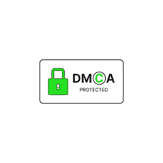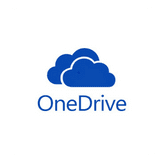MISC
Share Certificate
Packages Inclusion
-
Fast Track registration process .
-
Expert guidance and continued advisory services.
-
Seamless and personalized consultation with full transparency .
2000+ Businesses incorporated since

Trusted by
25,000+
world-class brands and organizations of all sizes












Overview
As the lifeblood of Indian private limited companies, share certificates offer much more than a piece of paper. They stand as testaments to ownership, legal instruments safeguarding your stake, and keys to the rights and responsibilities of being an investor. Understanding these nuanced documents empowers you, whether you’re a shareholder seeking clarity or a company official navigating the intricate terrain of corporate governance.
Eligibility:
The right to claim your piece of the pie through a share certificate extends to all shareholders in a registered Indian private limited company. This encompasses:
● Founding Members: Those who subscribed to the Memorandum of Association at the company’s inception.
● Investors: Individuals who contributed capital during subsequent fundraising rounds.
● Secondary Market Participants: Those who acquire shares through purchase or other forms of transfer.
Features of a Share Certificate:
Each certificate weaves a tapestry of crucial information:
● Company Identity: Proudly bears the company name, establishing its origin.
● Shareholder Recognition: Your name and unique folio number solidify your rightful claim to a portion of the company’s equity.
● Quantifying Your Stake: The specific number of shares owned ensures transparency and clarity regarding your investment size.
● Date of Investment: Marks the commencement of your ownership journey.
● Authorized Signatures: Signatures of designated officials add a layer of legal validity and authenticity.
Beyond the Printed Word: Features that Empower:
The significance of a share certificate extends beyond the physical:
- Proof of Ownership: An irrefutable testament to your legal claim on a portion of the company’s assets and profits.
- Record Keeping: A vital tool for tracking ownership distribution and maintaining accurate shareholder records.
- Transferability: Enables seamless share transfers through a formal endorsement process.
- Dividends and Voting Rights: Grants access to dividends and the right to participate in crucial company decisions through voting at shareholder meetings.
Detailed Stepwise Procedure:
Transforming your investment into a tangible certificate involves a defined process:
1. Board Resolution: The Board authorizes the issuance of certificates to specific shareholders.
2. Certificate Crafting: Certificates are prepared with meticulous attention to detail and legal compliance.
3. Formal Validation: Authorized officials validate the certificates with their signatures and the company seal.
4. Delivery to Shareholders: Certificates are delivered physically or electronically deposited into demat accounts.
5. Share Register Update: The company updates its share register to reflect the issued certificates.
List of Documents Required:
- Board Resolution authorizing certificate issuance.
- Proof of Incorporation (CIN).
- Shareholder Information (name, address, folio number).
- Share Allotment Details (number and denomination of shares).
- Stamp Duty Payment Challan (if applicable).
How it works
Experience effortless financial management with our streamlined process. Simply onboard, submit documents securely, and ensuring a seamless and efficient accounting partnership.
Get In Touch
Fill the form or Chat with one of our executive to get all the details.
Chat now
Provide Necessary Documents
Submit all necessary documents required for company registration.
Documents needed
Track Your Work
Get your work done in in 10-15 working days
Choose Your Plan
Your Financial Peace, Priced Right
Ultimate Startup Package
Our Ultimate Startup Package Service Include
Rs.21999/
/Including Govt. Fees
Dapibus sodales torquent vel hac vulputate ornare nam, magna rutrum sagittis libero nostra.
-
Pvt Ltd Company Registration -
MSME Registration -
Startup Registration -
GST Registration -
Trademarks Application -
Reply to Trademarks objection -
COI/MOA/AOA -
PAN/TAN / ESI PF -
2 DSC + 2 DIN
Get started
*Fee is inclusive of Government Fee, Out of Pocket Expenses, Professional Fee and GST.
Ultimate Small Business Package
Our Ultimate Small Business Package Service Include
Rs.23999/
/Including Govt. Fees
Dapibus sodales torquent vel hac vulputate ornare nam, magna rutrum sagittis libero nostra.
-
Pvt Ltd Company Registration -
MSME Registration -
Startup Registration -
GST Registration -
Trademarks Application -
Reply to Trademarks objection -
COI/MOA/AOA -
PAN/TAN / ESI PF -
2 DSC + 2 DIN
Get started
*Fee is inclusive of Government Fee, Out of Pocket Expenses, Professional Fee and GST.
Ultimate Enterprise Package
Our Ultimate Enterprise Package Service Include
Rs.25999/
/Including Govt. Fees
Dapibus sodales torquent vel hac vulputate ornare nam, magna rutrum sagittis libero nostra.
-
Pvt Ltd Company Registration -
MSME Registration -
Startup Registration -
GST Registration -
Trademarks Application -
Reply to Trademarks objection -
COI/MOA/AOA -
PAN/TAN / ESI PF -
2 DSC + 2 DIN
Get started
*Fee is inclusive of Government Fee, Out of Pocket Expenses, Professional Fee and GST.
Common Questions
Most Popular Questions
What is a share certificate in a private limited company?
A share certificate is a legal document issued by a company to its shareholders as evidence of ownership of shares in the company.
Why is a share certificate important for shareholders of a private limited company?
A share certificate serves as proof of ownership, enables shareholders to transfer or sell their shares, and facilitates participation in company decisions and dividends.
When are share certificates issued to shareholders of a private limited company?
Share certificates are typically issued at the time of allotment of shares, transfer of shares, or upon request by the shareholder.
What information is included in a share certificate of a private limited company?
A share certificate typically includes details such as the shareholder’s name, address, number of shares held, class of shares, distinctive numbers, and date of issue.
What are the key statutory documents that LLPs are required to maintain in India?
Yes, private limited companies are required to issue share certificates to shareholders as per the provisions of the Companies Act, 2013.
What happens if I lose my share certificate?
If your certificate is still in physical form, report the loss to the company and apply for a duplicate. Dematerialized shares cannot be lost.
Can I sell my shares without a certificate?
Yes, dematerialized shares can be easily sold through your demat account. Physical certificates require manual transfer through an endorsement process.
What is the procedure for issuing share certificates to shareholders of a private limited company?
The procedure involves preparing share certificates, obtaining board approval, updating company records, and delivering the share certificates to shareholders.
Can share certificates be issued in electronic form by private limited companies?
Yes, private limited companies can issue share certificates in electronic form (e-share certificates) as per the provisions of the Companies Act, 2013.
Non-compliance may lead to legal challenges, disputes over ownership, and difficulties in transferring or selling shares.
Can Avenue Advisory assist with the issuance of share certificates for private limited companies?
Yes, Avenue Advisory provides expert assistance for the issuance of share certificates, including drafting certificates, obtaining board approval, and updating company records.
How does Avenue Advisory ensure compliance with the share certificate issuance procedure?
Avenue Advisory ensures compliance by guiding companies through the process, preparing accurate documents, and facilitating timely issuance of share certificates to shareholders.
Do I need a share certificate to receive dividends?
Dematerialized shares automatically receive dividends credited to your demat account. Physical certificates require claiming dividends through the company.
Make your business stand out with our personalized accounting services.
Elevate your business with our tailored accounting solutions, uniquely designed to make your financial management stand out. Experience personalized services that go beyond numbers to drive your success.
Get Expert guidance
Why choose us
4 Seamless Steps to Your Success
Get what you need with Company Avenue Advisory’s hassle-free process. Follow these four simple steps and let us handle the rest:
STEP 1: Get Started (FREE!)
Share your needs and questions through our Quick Enquiry Form. Connect with a friendly advisor for a personalized call within 24 hours. Receive a clear quote without any obligation – it’s all about understanding your goals!
STEP 2: Find Your Perfect Path
Our dedicated advisors listen to your needs and help you explore options. We make things clear and answer any questions you have along the way. Get expert guidance and feel confident about your next steps.
STEP 3: Get it Done Simply
Access our streamlined platform for easy document management. We provide a simple questionnaire and checklist to ensure everything’s covered. Relax knowing we’re here to guide you every step of the way.
STEP 4: Pay Actual Fee and Enjoy Peace of Mind
Receive a transparent and fixed fee before you proceed – no surprises! Focus on achieving your goals knowing everything is handled efficiently and ethically. Trust our expertise and enjoy the journey towards your success.

